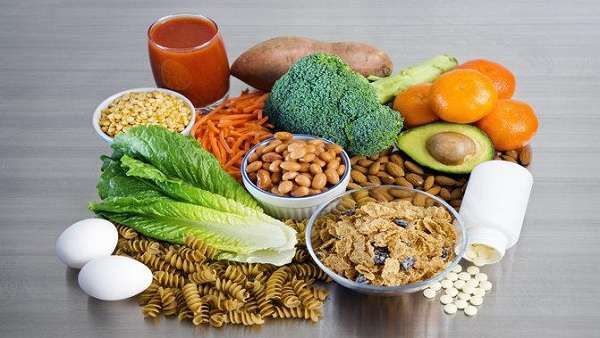
To lessen the burden of malnutrition in Nigeria, with a national prevalence of 32 per cent, and the second highest global burden of stunted children, a Nutritionist, Dr Kanalio Olaloku, has implored the Federal Government to leverage food and beverage fortification with essential micronutrients as a panacea.
Dr Olaloku, a nutrition expert with Nestle Nutrition Institute, Central West African Region, emphasised the necessity of the accessibility and affordability of these fortified products to vulnerable population, noting that it will go a long way in improving their health conditions.
Prevalence of malnutrition in Nigeria
Generally, she described malnutrition as poor intake of food which may be an excess consumption of food (overnutrition) or inadequate nutrient consumption (undernutrition).
She said, “Malnutrition is a broad term encompassing both undernutrition and over nutrition. Undernutrition refers to insufficient intake of essential nutrients, leading to conditions like stunting, wasting, and underweight. Conversely, over nutrition results from excessive food consumption, contributing to overweight, obesity, and related health issues.”
In a recent report by the United Nations Children Funds (UNICEF), with the title, “Child Food Poverty: Addressing Nutrition Deprivation in Early Childhood”, it was revealed that an estimated 11 million Nigerian children are going through severe child food poverty, a condition that predisposes them to life-threatening malnutrition.
The agency in related statement also noted that about 2 million children in Nigeria suffer from severe acute malnutrition (SAM), but only two out of every 10 children affected is currently reached with treatment, while seven percent of women of childbearing age are suffering from acute malnutrition.
Predisposing factors to malnutrition
Identifying the different factors responsible for this unenviable height in malnutrition to include failure in food systems, lack of safe and accessible options, families’ inability to afford nutritious foods, and parents’ inability to adopt and sustain positive child feeding practices, the children’s agency urged Nigerian government and governments across the globe to urgently stem the tide by addressing these factors headlong.
The Nestle Nutritionist who spoke recently at the annual symposium of the Health Writers Association of Nigeria (HEWAN) asserted that food micronutrient levels should be carefully calibrated to provide at least 15 percent of daily requirements while remaining below the upper intake limits to prevent overconsumption and potential adverse effects.
She disclosed that the World Health Organisation categorises malnutrition as including wasting (low weight-for-height), stunting (low height-for-age), underweight (low weight-for-age), as well as deficiencies in vitamins and minerals, and their associated diseases. Lamenting that Nigeria continues to struggle with poor chronic indicators, she recalled that WHO, describes nutrition as the intake of food considered in relation to the body’s dietary need of cells.
Pertinence of food fortification

Speaking exclusively with Pharmanewsonline shortly after her presentation, Dr Olaloku stressed the cruciality of food fortification as portent tool in combating the perennial child and adolescent malnutrition in sub-Saharan Africa, as she highlighted findings from a nutritional assessment study conducted in Ibadan, which found that over 60 percent of 4-8-year-old children had inadequate intakes of calcium, copper, iron, folate, and vitamins A, D, and E.
The nutrition investigation titled, “Nutrient Intake in Children 4-13 Years Old in Ibadan, Nigeria”, further discovered other nutrition gaps in school age children, such as micronutrient deficiency, as most of the data obtained from the 955 sampled children fell short of the Adequate Macronutrient Distribution Ranges (AMDRs), which were characterised by a higher proportion of energy from carbohydrates and lower proportion from total fats.
A similar study on food sources and dietary patterns in southwestern Nigeria, with the title, “Food Sources of Key Nutrients, Meal and Dietary Patterns among Children Aged 4–13 Years in Ibadan, Nigeria: Findings from the 2019 Kids Nutrition and Health Study” further validates the need for food fortification in Nigerian school children, as it found that top foods consumed by the children were lacking in adequate micronutrient, which is crucial to their wellbeing and optimal development.
Lead author of the research, Rasaki A, Sanusi, disclosed more findings from their work, noting that sources of energy and key nutrients, such as yam, cassava, rice maize, bread, beans, and legumes were limited. Comparing portions of carbohydrate and proteinous meals consumed by the target population, which are school age children, he said their findings revealed higher consumption rates in carbohydrate than proteinous food, which is not ideal for the overall development of children ages 4-8 and 9-13 years, respectively.
Nestle’s mission in food fortification
In her presentation entitled “Adequate Nutrition as Preventative Medicine,” Olaloku emphasised the increased need for fortified foods, as empirical studies have shown that the consumption pattern of an average Nigerian family is limited in micronutrients, which are essential for the development of children and adolescent.
She explained that it is the desire to fill this nutrition gaps in Nigeria and Sub-Saharan Africa, that envisioned the Nestle’s mission in food fortification, in ensuring that an average Nigerian child has the necessary nutrient for maximum development. The nutritionist averred that over 80 per cent of Nestlé’s products produced and sold in Nigeria are fortified with essential nutrients and vitamins such as iron, zinc, and calcium to provide the necessary micronutrients to support adequate nutrition for well-being. The company’s focus on prioritising optimal childhood nutrition reflects its dedication to supporting children and families worldwide.
The food specialist mentioned some fortified Nestle’s brands that are popular and affordable choices for the average Nigerian family to include Maggi, Bear Brand, and Cerevita, which are fortified with at least one of the big four micronutrients, such as iron to prevent iron deficiency anaemia, Iodine for optimal brain development and a healthy metabolism, vitamin A for growth and development, good eye health, and a strong immune system, and Zinc as a catalyst for growth and immune booster.
Affirming the pivotal role of food fortification and healthy lifestyle in growing children, Victoria Uwadoka, corporate communications, public affairs, and sustainability lead at Nestlé Nigeria, in a statement made available to Pharmanewsonline, highlighted Nestle’s various efforts aimed at boosting the overall wellbeing of children and adolescent.
“Childhood is a critical period for forming life-long habits that could determine quality of life in the future. Therefore, teaching children to eat right, stay active, pursue their dreams, set and achieve goals is one of the ways through which we are nurturing the next generation of leaders.
“We achieve this through Nestlé MILO Building Champs, Nestlé MILO Basketball Championship, Nestlé for Healthier Kids and the Nestlé Community Scholarships. This year, we are extending these programmes to more schools and communities, to reach even more children.”
Prioritisation of breastfeeding for under-five children
Aside food fortification, Olaloku mentioned breastfeeding as a perfect means of preventing malnutrition in under-five children, while she decried decrease in the rate of breastfeeding among nursing mothers, identifying it as one of the factors fueling unregulated distribution of breastmilk substitutes, compounded by limited access to clean water during crises, which significantly predispose infants to morbidity and mortality.
Calling for prioritisation of breastfeeding practices alongside food fortification, she emphasised that provision of essential support can mitigate these risks and help bridge the gap between the most vulnerable and those with greater access to resources.











